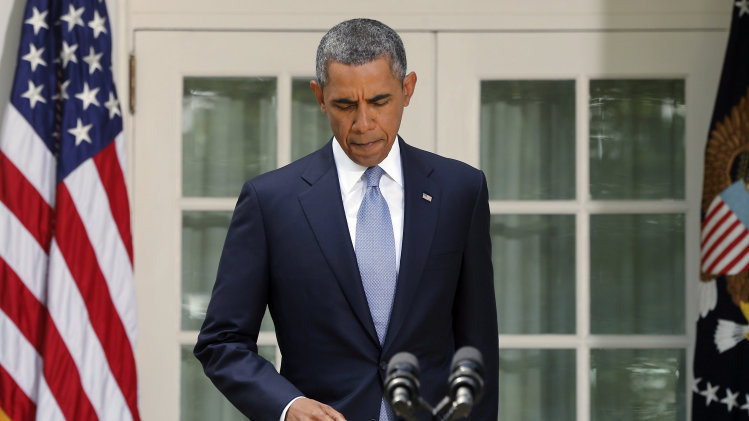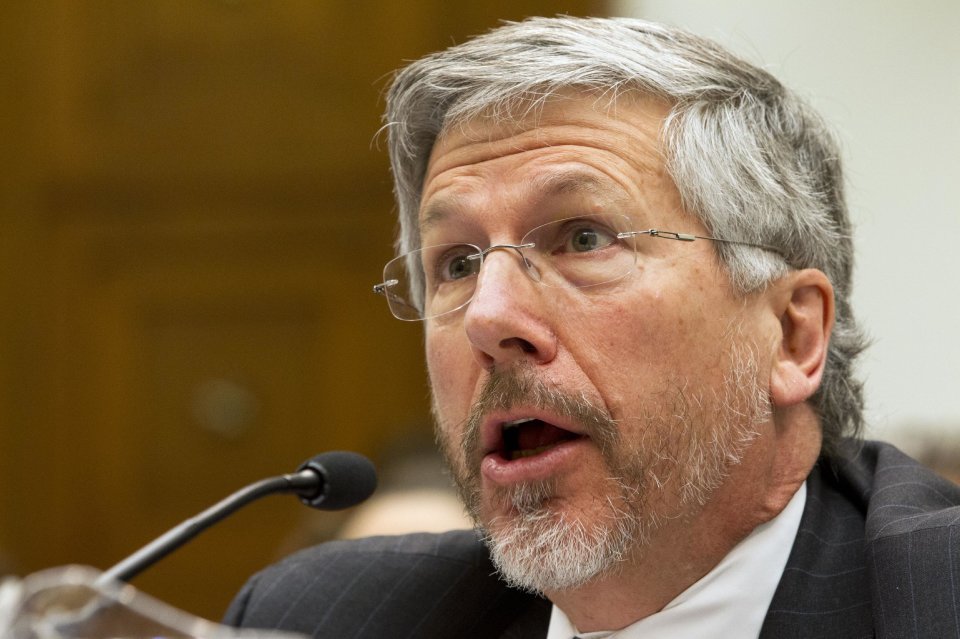
The leader of the embattled National Security Agency doubled down Wednesday against calls from Capitol Hill to restrict U.S. government surveillance programs — a campaign he attributed to “sensationalized” reporting and “media leaks.”
On the same day that key Senate lawmakers pledged to bring new oversight to the NSA, Gen. Keith Alexander mounted a public defense of his agency: He stressed the intelligence community isn’t “listening to Americans’ phone calls and reading their emails,” and he urged technology and government leaders to help “get the facts out” and “get our nation to understand why we need these tools” in the wake of Edward Snowden’s disclosures.
Speaking at a cybersecurity conference in Washington, Alexander also commended companies for cooperating with the federal government, and he made a plea for more power — particularly to thwart terrorists who have elevated their activities to cyberspace.
“Over 950 people were killed in Kenya, Syria, Iraq, Yemen and Afghanistan,” Alexander said at the Billington CyberSecurity Summit, referencing recent violence in the region, “and we’re discussing more esoteric things here. Why? Because we’ve stopped the terrorist attacks here.”
“We’ve been fortunate, and it’s not been luck,” the general continued. “It’s our military that’s out [front], and it’s our intelligence community back here. They can’t do it without tools. So we’re going to have a debate in this country: Do we give up those tools? I’m concerned we’ll make the wrong decision.”
Alexander gave the speech before attending a classified meeting with lawmakers on the Senate Judiciary Committee — whose chairman, Sen. Patrick Leahy (D-Vt.), just this Tuesday called for sweeping changes to the NSA’s surveillance powers.
Sens. Ron Wyden (D-Ore.), Rand Paul (R-Ky.) and other lawmakers later unveiled their own blueprint for surveillance reform. The package would reform the secret court that authorizes government surveillance requests while limiting the NSA’s ability to collect U.S. phone call logs in bulk.
“It is designed to set a high bar and serve as a measure for true intelligence reform,” Wyden said at a news conference, emphasizing the proposed legislation is “not cosmetic.”
Alexander heads back to the Hill on Thursday to testify before the Senate Intelligence Committee, which is exploring the NSA’s data collection and retention practices under the Foreign Intelligence Surveillance Act, or FISA. He’ll return again next week for an open session with Leahy’s panel.
Even against those strong political currents, however, Alexander fiercely defended the NSA’s existing authorities.
The general repeatedly referenced Sept. 11, 2001, saying the intelligence community had learned from those attacks that it “had to connect the dots.” Alexander pointed to the Boston tragedy and “the threats this summer” as he made the case for “speed and agility” in intelligence gathering. The NSA leader also rebuffed charges that his agency had siphoned up mounds of Americans’ personal data. Pointing to Section 215, the provision in the PATRIOT Act under which the NSA has sought telephone call logs in bulk, Alexander emphasized: “There is no content, there [are] no names, just the numbers. That’s it. That’s all we asked for.”
Alexander also appeared to defend tech companies like Google and Microsoft, both of which are actively are fighting the federal government to release more data about government surveillance requests. Speaking only generally about “industry,” Alexander said companies aren’t “driving up to the NSA” and “dumping” data. They’re doing “what the courts are directing them to provide,” Alexander said. “Our industry have taken a beating on this, and it’s wrong.”
———
Click below for the full article:
http://www.politico.com/story/2013/09/nsa-chief-slams-sensationalized-reporting-97337.html


